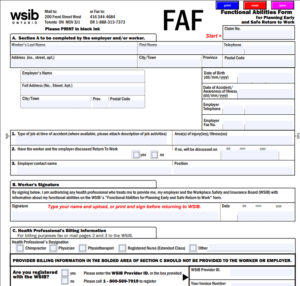Promoting the mental health and well-being of first responders is an imperative that transcends the boundaries of duty and responsibility.
The demanding roles undertaken by these dedicated professionals, encompassing police officers, firefighters, paramedics, and emergency medical personnel, expose them to unparalleled stress and traumatic experiences.
In recognition of these challenges, the implementation of workplace mental health accommodations becomes not only a pragmatic necessity but a profound obligation.
By fostering an environment that prioritizes mental wellness and offering tailored support mechanisms, employers and communities alike can play a pivotal role in safeguarding the psychological welfare of those who selflessly safeguard us all.
Training and Education
Comprehensive training should cover mental health awareness, stress management, coping strategies, and recognizing signs of distress in themselves and their colleagues. This education empowers first responders to understand the importance of mental health and seek help when needed.
Access to Mental Health Resources
Employers should provide easy access to mental health resources, including confidential counseling services, support groups, and employee assistance programs (EAPs). These resources offer professional guidance for dealing with the emotional toll of their work.
Flexible Scheduling
Rotating shifts and long hours can disrupt sleep patterns and contribute to stress. Offering flexible scheduling options, such as compressed workweeks or the ability to swap shifts, helps first responders manage their work-life balance more effectively.
Peer Support Programs
Peer support programs encourage open dialogue among first responders who share similar experiences. Peer support can help reduce stigma, normalize conversations about mental health, and foster a sense of camaraderie.
Trauma-Informed Approach
A trauma-informed approach means recognizing the potential impact of trauma on first responders’ mental health. Employers should create an environment that prioritizes sensitivity, empathy, and understanding when addressing trauma-related issues.
Regular Check-Ins
Regular one-on-one check-ins between supervisors and first responders provide a platform for discussing mental health concerns, challenges, and potential stressors. These conversations should focus on support rather than performance evaluation.
Transitional Support
Following traumatic incidents, first responders might need a period of reduced workload or modified duties to recover mentally and emotionally. Transitional support helps them ease back into their regular duties while receiving necessary accommodations.
Workload Management
Overwhelming workloads can lead to burnout and negatively impact mental health. Employers should ensure proper staffing levels, distribute workloads fairly, and provide opportunities for rest and recovery.
Clear Reporting Procedures
Establish clear procedures for reporting incidents that impact mental health. This encourages first responders to seek help when they experience trauma and ensures they receive the appropriate accommodations and support.
Accommodations for Mental Health Conditions
If a first responder is diagnosed with a mental health condition, employers should work collaboratively with them to identify and implement reasonable accommodations. These accommodations might include modified duties, reduced exposure to triggering situations, or additional breaks.
Crisis Intervention Training
Specialized training in crisis intervention equips first responders with skills to manage high-stress situations effectively. This training can reduce the psychological impact of critical incidents and enhance their ability to provide appropriate support.
Cultural Competency
Recognize and respect the diverse backgrounds of first responders. Cultural competency ensures that accommodations are tailored to individual needs and that cultural differences are taken into account.
In the crucible of their service, first responders confront trials that test not only their physical endurance but also their mental fortitude.
As we navigate the intricate landscape of workplace mental health accommodations, let us remember that the well-being of these individuals is a shared responsibility.
By championing comprehensive training, empathetic support systems, and adaptive policies, we can ensure that those who rush towards crises to protect and serve are also offered the protection and support they deserve.
Just as they stand on the frontlines for us, let us stand resolutely for their mental health, fostering a culture that embraces both their sacrifices and their needs.
Facts About Mental Health and First Responders in Canada
- The Tema Conter Memorial Trust: In Canada, the Tema Conter Memorial Trust is a prominent organization dedicated to supporting the mental health of first responders. They provide resources, training, and a confidential helpline specifically tailored to the needs of paramedics, firefighters, police officers, and other emergency personnel.
- Presumptive PTSD Legislation: Several Canadian provinces have implemented presumptive PTSD legislation. This legislation recognizes that PTSD is often work-related for first responders, making it easier for them to access workers’ compensation benefits and mental health support when diagnosed with PTSD.
- Unique Challenges for Rural Responders: While much attention is given to urban first responders, their rural counterparts face distinct challenges. Remote locations, limited resources, and isolation can exacerbate mental health issues. Specialized accommodations are needed to address these unique circumstances.
- Indigenous First Responders: Canada’s Indigenous communities often have their own first responders, such as community health workers and crisis intervention teams. Cultural sensitivity and tailored accommodations are crucial in supporting the mental health of Indigenous first responders, who may face additional challenges tied to historical trauma and cultural factors.
- Research Initiatives: Canadian universities and research institutions are actively studying the mental health of first responders. These studies aim to identify effective interventions and accommodations. For example, researchers are investigating the impact of shift work on mental health and exploring innovative therapies like equine-assisted therapy for first responders.
Canada, like many other countries, recognizes the vital role of workplace mental health accommodations for first responders and continues to evolve its approach to better support these dedicated professionals.
FAQs About Workplace Mental Health Accommodations for First Responders
Can first responders request mental health accommodations without fear of reprisal from their employers?
Answer: Yes, Canadian law protects the rights of first responders to request mental health accommodations without facing retaliation or discrimination. Employers are legally obligated to provide reasonable accommodations and ensure a safe work environment.
Are mental health accommodations for first responders costly for employers?
Answer: While some accommodations may have associated costs, the benefits of supporting first responders’ mental health often outweigh these expenses. Reduced turnover, increased productivity, and improved morale can result from effective mental health accommodations.
What confidential resources are available for first responders seeking mental health support?
Answer: First responders in Canada can access confidential resources like the Tema Conter Memorial Trust’s helpline, peer support programs, and Employee Assistance Programs (EAPs) provided by their employers.
Are mental health accommodations only for first responders with diagnosed conditions?
Answer: No, mental health accommodations can be provided on a proactive basis. First responders can request accommodations to help prevent mental health issues, such as adjustments to shift schedules or stress-reduction training.
How do presumptive PTSD laws work in Canada?
Answer: Presumptive PTSD legislation in Canada generally presumes that PTSD in first responders is work-related. This simplifies the process of accessing workers’ compensation and mental health support for PTSD cases, removing the burden of proof from the first responder.
What initiatives are in place to reduce stigma surrounding mental health in the first responder community?
Answer: Various organizations in Canada conduct anti-stigma campaigns and mental health awareness training to reduce the stigma associated with seeking help for mental health issues among first responders.
How do Canadian provinces differ in their approach to mental health accommodations for first responders?
Answer: While the overarching principles are similar, each Canadian province may have variations in their specific legislation and programs related to mental health accommodations for first responders.
What role do unions play in advocating for mental health accommodations for first responders in Canada?
Answer: Many unions representing first responders actively advocate for mental health support and accommodations, negotiating for better mental health policies and resources on behalf of their members.
Are there any government grants or funding available to support mental health initiatives for first responders in Canada?
Answer: In some cases, government grants and funding may be available to support mental health initiatives for first responders. These grants can be used to develop and implement mental health programs and resources within organizations.
Glossary of Terms Used in the Article
- First Responders: Professionals who are the first to arrive and provide assistance at the scene of emergencies, including police officers, firefighters, paramedics, and emergency medical personnel.
- Mental Health Accommodations: Adjustments or modifications made in the workplace to support the mental well-being of individuals, in this case, first responders.
- Trauma-Informed Approach: An approach that recognizes and addresses the potential impact of trauma on individuals and organizations, emphasizing sensitivity and understanding.
- Peer Support Programs: Programs that encourage first responders to support and communicate with colleagues who have similar experiences, fostering camaraderie and reducing stigma.
- Transitional Support: Assistance provided to first responders after experiencing traumatic incidents, often involving modified duties or reduced workloads to aid in emotional recovery.
- Workload Management: The process of distributing work tasks and responsibilities in a way that ensures they are fair, manageable, and do not lead to burnout.
- Clear Reporting Procedures: Established protocols for first responders to report incidents or situations that may impact their mental health, ensuring appropriate support is provided.
- Reasonable Accommodations: Adjustments made by employers to accommodate the needs of employees with disabilities or mental health conditions without causing undue hardship.
- Crisis Intervention Training: Specialized training that equips first responders with the skills to effectively manage high-stress situations and provide appropriate support.
- Cultural Competency: The ability to understand, respect, and effectively interact with individuals from diverse cultural backgrounds, ensuring accommodations are culturally sensitive.
- PTSD (Post-Traumatic Stress Disorder): A mental health condition that can develop after exposure to traumatic events, leading to symptoms such as flashbacks, nightmares, and severe anxiety.
- Workers’ Compensation: A form of insurance that provides wage replacement and medical benefits to employees who are injured or become ill as a result of their job.
- EAP (Employee Assistance Program): A workplace program that provides confidential counseling and support services to employees, often including mental health resources.
- Burnout: A state of physical or emotional exhaustion resulting from prolonged exposure to high levels of stress, often leading to decreased job performance and well-being.
- Presumptive Legislation: Laws that presume a certain condition or illness to be work-related, simplifying the process for workers to access compensation or support.
- Remote Locations: Geographical areas that are distant from urban centers and may pose unique challenges for first responders in terms of access and resources.
- Indigenous First Responders: First responders who are part of Indigenous communities, often facing distinct challenges tied to cultural factors and historical trauma.
- Equine-Assisted Therapy: A therapeutic approach that involves interactions with horses to promote emotional and psychological healing.
- Anti-Stigma Campaigns: Initiatives aimed at reducing societal and workplace stigma associated with mental health issues, encouraging open discussion and support.






